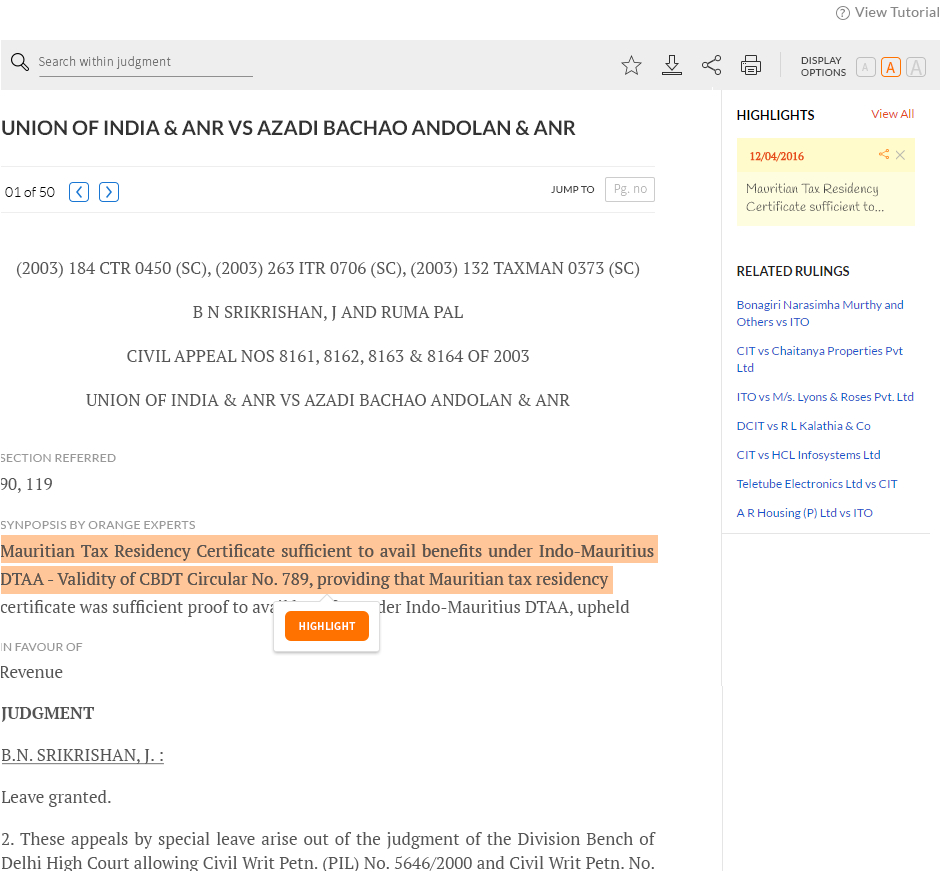
-
2017-07-12
It is the return filing season for salaried employees with 31st July being the last date to file returns for such assessees. This article makes an attempt to list the topmost 10 things that should be borne in mind at the time of filing returns of a salaried individual.
1. Quote and Link your Aadhaar Number
From 1st July 2017, you must quote your Aadhaar Number in the return of income. In case if you have applied for Aadhaar Number but have not yet allotted the number, then you can quote your Enrollment ID of Aadhaar application form. Further, your Aadhaar Number is to be linked with your Permanent Account Number (PAN). The linking process is very simple which can be done once you log in to your account on Income Tax e-filing portal.
2. Check your Form 26AS
All the income on which your Tax is deducted at source by your employer, banker etc. reflects in your Form 26AS. Before you file your tax return, log in to income tax e-filing portal and check that the tax credit which you claim is appearing in your Form 26AS.
3. Deduction of House Rent paid
If you are paying house rent and have received House Rent Allowance (HRA) as part of his salary, then you can avail benefit of HRA exemption. The same may be considered by employer in Form 16 only. However if you had not submitted the details to employer before, then still you can claim HRA exemption under section 10(13A) of Income Tax Act in your return of income.
If you pay house rent but do not receive HRA, then you can claim deduction of rent paid under section 80GG of Income Tax Act. The deduction u/s 80GG is available to the extent of rupees five thousand per month or twenty five per cent of total income whichever is lower, subject to certain conditions.
If the amount of house rent paid is more than rupees one lakh in a year, then Permanent Account Number (PAN) of the house owner is mandatorily required to be mentioned while claiming deduction of rent paid.
4. Disclosure in case of income more than Rs.50 Lakhs
In the case your income for the year is more than Rs.50 lakhs, then details of assets and liabilities are required to be disclosed in the return of income under Schedule AL.
If the return is submitted without mentioning those details, then the return may be considered as defective return.
5. Interest on housing loan
The deduction of interest on housing loan shall be claimed to the extent of rupees two lakhs in case if the house is self occupied. There is no maximum limit for the deduction of housing loan interest in case of let out or deemed let out property. The overall limit of rupees two lakhs to set off the housing loan interest will be applicable from Assessment Year 2018-19. Hence Assessment Year 2017-18 will be the last year when benefit of actual amount of interest in case of let out or deemed let out house property set off can be availed over and above rupees two lakhs limit of self occupied house property.
6. Check your deductions
There are various deductions which can be claimed from your income which majorly includes investments deductible under section 80C and donations under section 80G. Your employer may not consider your 80G deductions in Form 16 and hence claim it separately while filing your return of income. Please ensure that you have PAN of the trust available with you as the same is the mandatory requirement for claiming deduction under section 80G.
Deductions under section 80C like tution fees of your child, investments in ELSS, principle amount of housing loan repaid etc. is to be claimed in case if the same is already not considered in your Form16.
7. Income other than salary income
Please make sure that you are offering to tax your income other than salary income in your income tax return. Typically, interest on fixed deposits, capital gains, rent income etc. is the income likely to be missed out while filing tax return. Do check your Form 26AS for TDS made by banks on your FD Interest. Also obtain capital gain/loss statement from your investment manager. As banks, stock brokers, mutual funds report transactions through their Annual Information Return (AIR), it is advisable to offer all your income to tax to avoid notices and consequently interests, penalties arising out of concealment of income.
8. Disclose all your bank accounts
Disclose all your operative bank accounts in your income tax return. Traditionally everyone used to furnish any one of the bank accounts in the return of income. However, now all the operative bank accounts details like bank, account number and IFSC are required to be mentioned in your return of income.
9. Taxation in case of more than one employer in a year
In case if you have changed your employer during the year, then you will have to obtain separate Form 16 from both the employers. If you have shared salary income details of your earlier employer with your new employer then entire income might have been incorporated in your Form 16 of new employer. In case if you have not shared income details, then make sure that you consider Form 16 received from both the employers and it may result into tax liability as both the employers might have considered basic exemption limit as well as deductions separately while calculating TDS on salary.
10. Revise your return in case of any mistake

